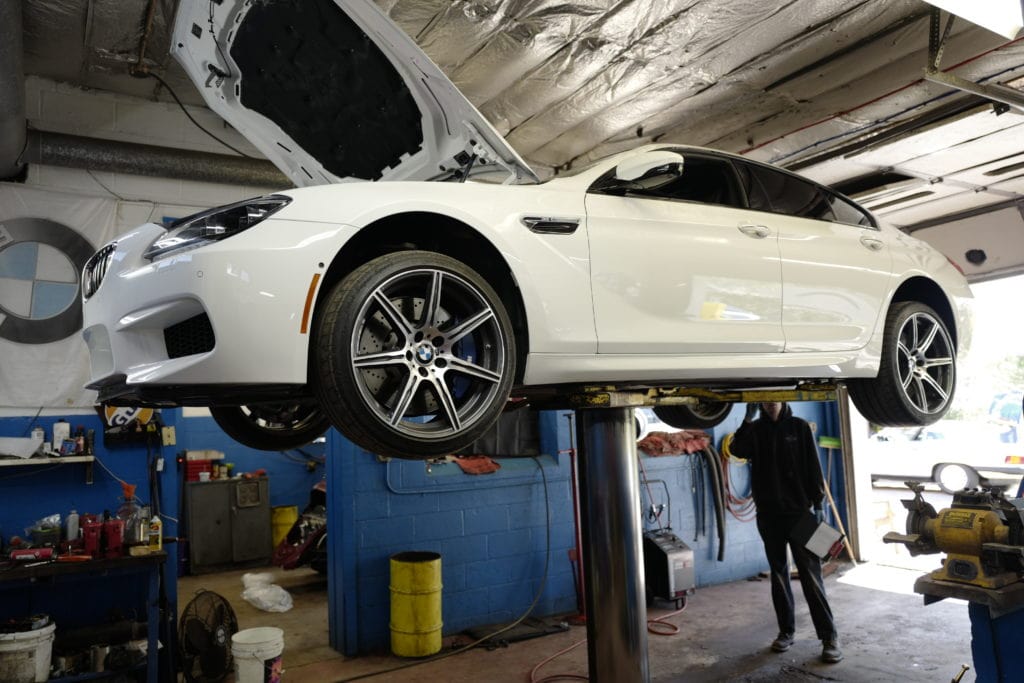All About bmw maintenance services
BMW MAINTENANCE GUIDE

General Maintenance Guide
Perform maintenance every 6,000 miles. It will keep the engine in working order, prevent premature failure or malfunctions, and increase the car’s service life. However, due to frequent traffic jams, bad roads, and low-quality fuel use, the service interval can go down to every 4,000 miles.
Depending on the mileage, the BMW maintenance recommendations include: changing motor oil, air, and cabin filters, changing automatic transmission fluid, checking the condition, and adjusting the chassis by a specialist using special equipment.
Full Circle Maintenance
The entire cycle of maintenance work for BMW models includes the following:
- Perform computer diagnostics of the car systems, running gear, suspension, and control inspection during every scheduled service.
- Check the brake system and replace brake pads after 25,000 miles or as needed.
- Change the oil and filters regularly. Replace the motor oil and oil filter after 6,000 miles, and replace the engine fuel filter after 18,000 miles. Replace the air and cabin filters when they become clogged. For automatic transmissions, replace filters and transmission fluid after 37,000 miles.
- Replace the coolant and brake fluids after 12,000 miles.
- Replace consumable parts regularly. It is recommended to replace spark plugs every 25,000 to 37,000 miles and timing belts every 37,000 to 50,000 miles. The replacement interval can be increased for mild operation, determined after diagnostics and inspection.
- Change the lubricant in transfer boxes, axles, and power steering fluid when they get contaminated.
- Adjust the wheel camber after 18,000 to 25,000 miles. Replace lubricants and brake fluids at the mandatory replacement interval.
BMW Maintenance Schedule
The maintenance schedule involves much work, which must be carried out with specific regularity. A lot depends on its frequency, so the car service guide must contain the relevant information. The time intervals between the car maintenance, the mileage, and the operating time may also influence the schedule.
Two to three times a year, or every 5,000 miles, have your BMW prepared for the following routine check:
- Brake fluid check
- Brake inspection, front and rear
- Cabin air filter inspection
- Coolant check
- Engine inspection
- Engine oil check
- Tire rotation, if necessary
- Vehicle inspection
- Wiper blade inspection
Every 10,000 miles, or yearly: replace engine oil, oil filter, and coolant.
Every 20,000 miles, or every two years: inspect and replace fuel filters.
Every 30,000 miles, or every three years:
- Replace brake fluid (after the first replacement, every 60,000 miles).
- Replace transmission fluid on manual-transmission BMWs.
Every 60,000 miles, or every six years:
- Replace the engine air filter and spark plugs.
- Inspect and replace brake pads and brake rotors as necessary.
- Replace transmission fluid on automatic-transmission BMWs.
Every 90,000 miles, or every nine years: replace timing belts and hoses.
Maintenance Of Individual Components
Regular maintenance of individual components is crucial to ensure the optimal performance of your BMW. Here are some key things to keep in mind:
- Engine oil tests indicate that oil loses its properties after 5,000 miles of intensive operation, such as using fuel with high sulfur content. It accelerates the oxidation process of the engine oil and reduces its lubricating properties.
- The air filter can become contaminated with road dust and dirt over time, which can impede airflow and cause engine performance issues.
- Spark plugs can be negatively affected by fuel additives that increase the octane and cetane numbers of the fuel.
- The fuel filter in a diesel engine is essential to protect the system from moisture and mechanical contamination. Even a small particle of dirt in the fuel injector can necessitate expensive replacements. The cleaning requirements for gasoline engines are somewhat simpler since the filter is usually located in the tank.
- Automatic transmission fluid must have various functions, including lubrication and friction protection. Over time, the fluid loses some properties, making it necessary to change it.
- Brake fluid is hygroscopic, meaning it tends to absorb moisture. BMW recommends changing the brake fluid once every two years, as regular use can lead to moisture accumulation, affecting the brakes’ performance.
- The antifreeze in your BMW will start to wear out mechanically within three years. So, just as with many other fluids, replace it after this period passes.
Summary –
The Bavarian car manufacturer strictly regulates the frequency and content of maintenance checks. So, make sure to follow their recommendations closely. However, if your BMW undergoes extensive use or you frequently drive in harsh road conditions, make auto shop visits more often to ensure proper functioning.
We'd love to be your BMW Shop
CONTACT US
At H & R Independent BMW Services we are dedicated to providing dealership quality BMW repairs at an affordable price. Our shop was created to provide owners a dealer alternative, a cost effective solution to BMW repairs without sacrificing quality or service.
Reach us through
- 12036 Centralia Rd, Hawaiian Gardens, CA 90716
- +1 (562) 809-4269
Social Networks
- yourfbusername
- @twitterhandle
- insta_account
- plusprofilename
